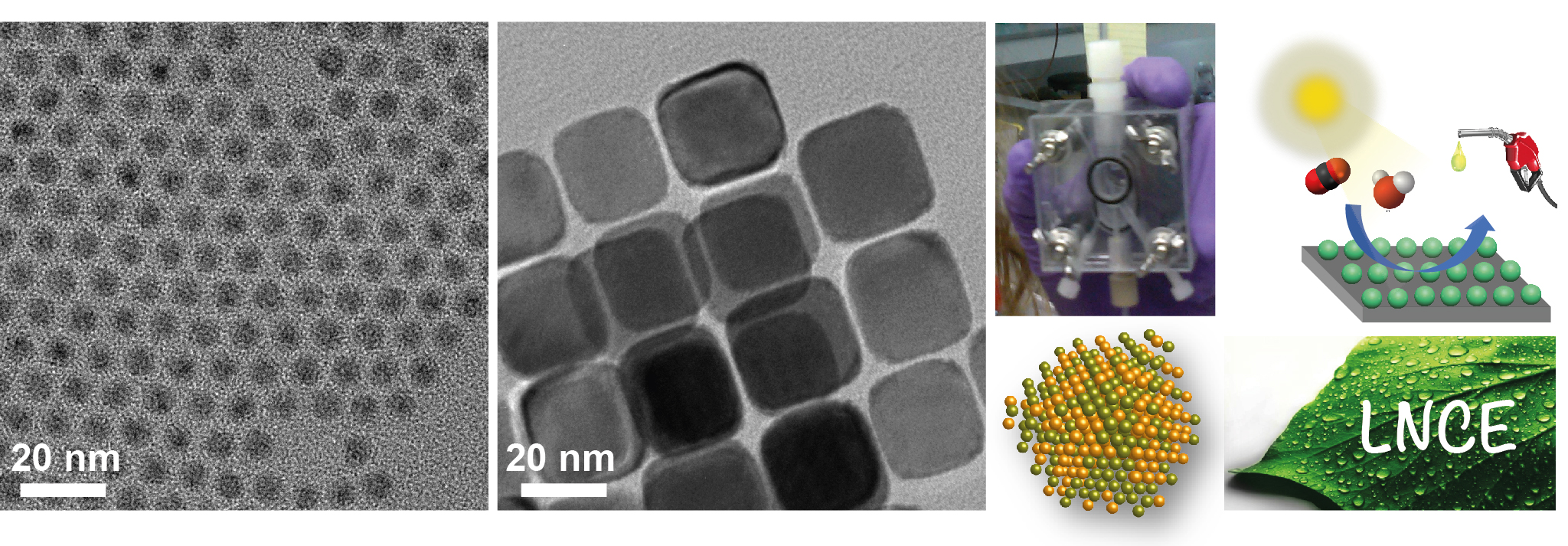.

Laboratory for Energy Materials (LEM)
Prof. Sascha FELDMANN
The Feldmann Lab at EPFL/Harvard combines ultrafast magneto-chiroptical spectroscopy and materials chemistry to transform the way we produce and consume energy as a society.
.
Laboratory of Advanced Separations (LAS)
Prof. Kumar Varoon AGRAWAL
Material chemistry and engineering at the nanometer length-scale for energy-efficient separations. Nanoporous two-dimensional materials and membranes. Membranes based on single-layer graphene, metal-organic frameworks (MOFs), carbon nitride and zeolitic nanosheets.

Laboratory of Nanochemistry for Energy (LNCE)
Prof. Raffaella BUONSANTI
Nanochemistry, Solar-to-fuel conversion, Multi-cations Metal Oxides and their Heterostructures, Electrocatalytically active nanocrystals, Nanocrystal Assembly into Multifunctional Hybrids

Laboratory of Organometallic and Medicinal Chemistry (LCOM)
Prof. Paul J. DYSON
Biphasic catalysis in water and ionic liquids. Design of ruthenium anticancer compounds. Transition metal clusters in novel synthesis and catalysis.

Laboratory for Photonics and Interfaces (LPI)
Prof. Michael GRAETZEL
Semiconductor nanocrystallites and mesoscopic oxide films. Dye sensitized solar cells(DSC) lithium insertion batteries and electrochromic displays. Development of new ionic liquids, which are used as “green” electrolytes in solar cells and other electrochemical devices.

Laboratory of Computational Systems Biotechnology (LCSB)
Prof. Vassily HATZIMANIKATIS
Modeling and Analysis of Large Biopolymerization Networks. Metabolic Control Analysis under Uncertainty. Discovery of Novel Biotransformations.
Laboratory of Inorganic Synthesis and Catalysis (LSCI)
Prof. Xile HU
Biocatalysis, artificial enzymes, ion exchange membranes, electrocatalysis, electrochemical energy devices, green hydrogen, CO2 and CO reduction

Laboratory of Sustainable and Catalytic Processing (LPDC)
Prof. Jeremy LUTERBACHER
Biomass conversion, Heterogeneous catalysis, Biocatalysis, Green solvents Multiphasic and high-pressure systems

Laboratory for Molecular Engineering of Optoelectronic Nanomaterials (LIMNO)
Prof. Kevin SIVULA
Solar energy conversion. Organic, nanoparticulate inorganic, and hybrid semiconductors.

Laboratory of Molecular Simulation (LSMO)
Prof. Berend SMIT
Computational molecular simulations applied to: Energy storage, Surfaces and biological membranes

Laboratory of Materials for Renewable Energy (LMER)
Prof. Andreas ZÜTTEL
Ways of storing hydrogen efficiently, and they therefore investigate the interaction between hydrogen and a wide range of materials, such as the surface of metals and insulators, as well as nanostructures and intermetallic compounds.

Group for Sustainable Energy Carriers (GSE)
Prof. Oliver KRÖCHER
Highly efficient catalytic processes to biofuels, Catalyst design for biofuel synthesis

Group of Coordination Chemistry (GCC)
Prof. Marinella MAZZANTI, Dr MER Anne-Sophie CHAUVIN
Coordination chemistry, organometallic chemistry, Redox active ligands, Lanthanide and uranium chemistry, Small Molecule Activation, Molecular magnetism, Supramolecular chemistry


